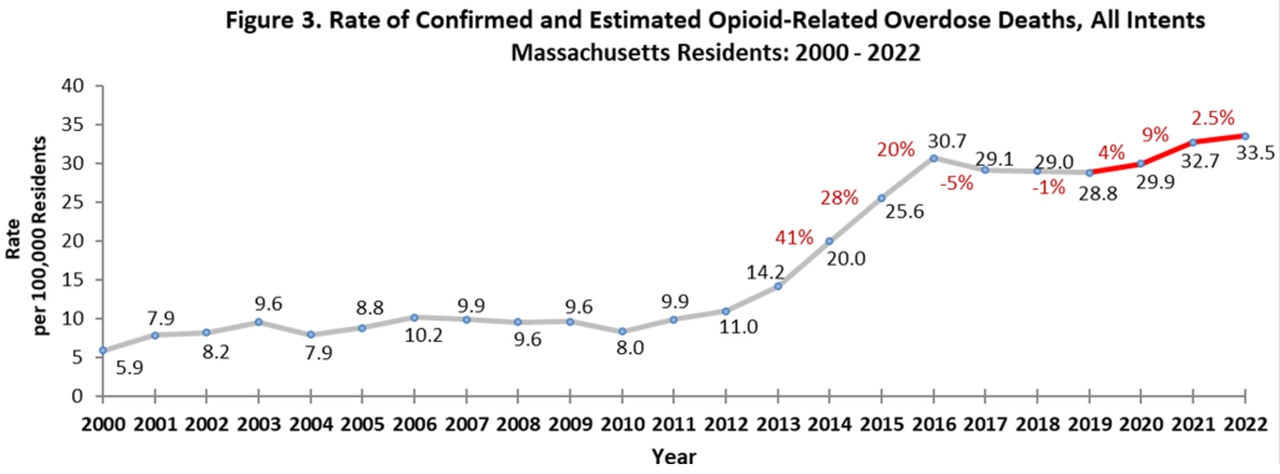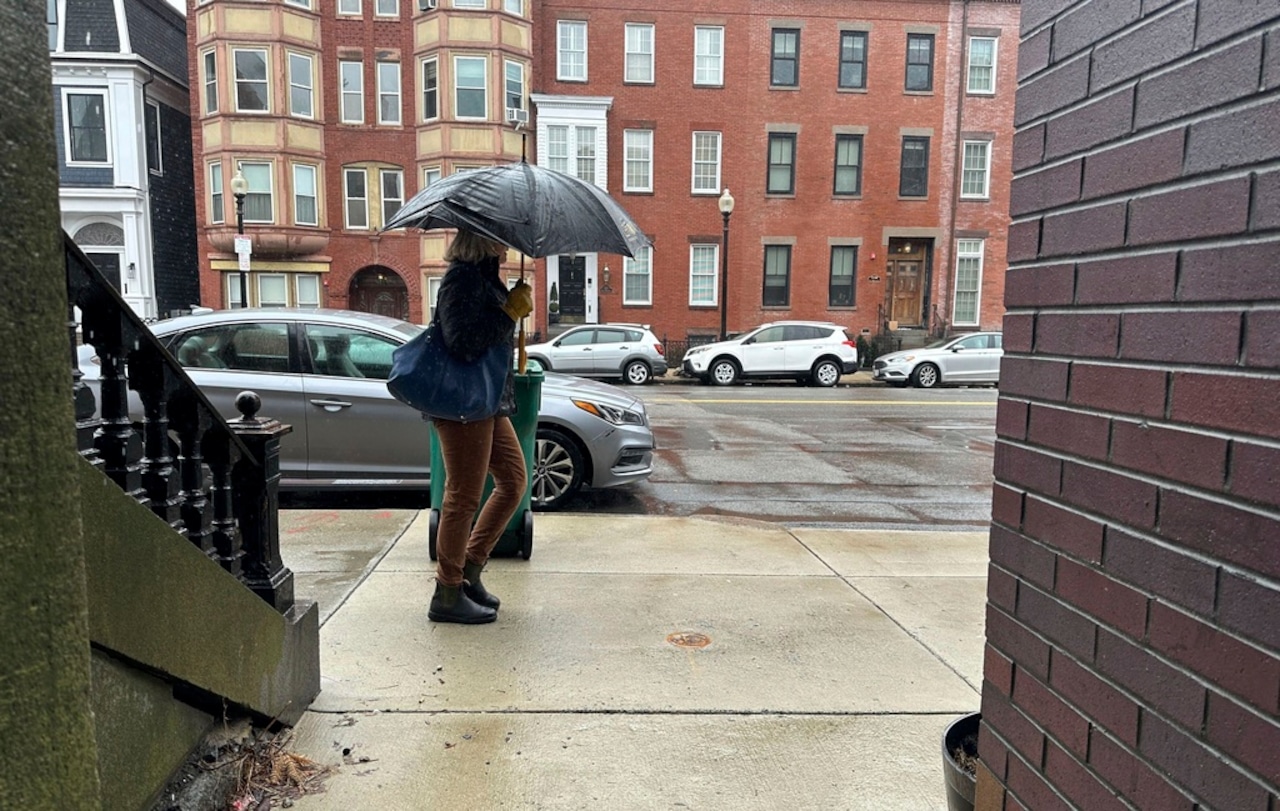When police arrived on the scene of an overdose in the Berkshires several years ago, officers didn’t have any naloxone, a medication that can reverse an opioid overdose. It is often known by the brand name Narcan.
“In the presence of a police officer waiting for Narcan to arrive, the overdose victim died in the presence of his family,” said state Rep. Smitty Pignatelli, D-Lenox, who didn’t want to name the specific town.
At a hearing last month, Pignatelli told lawmakers the young man’s death was his impetus to file legislation in 2019 that would require all first responders — including police officers — to carry naloxone.
The nasal spray can reverse the effects of an overdose and is available over the counter. After not passing in two previous legislative sessions, the bill is back before lawmakers.
The Republican contacted every police department in Hampden County, and the vast majority already have their officers carry naloxone. They are sometimes on the scene before an ambulance and many cited rising overdose deaths as a reason to carry it.
Last year, 227 people died of overdoses in Hampden County, the most the county has ever seen, according to preliminary state data. Some smaller departments started carrying the opioid antagonist in the last year, while at least one department in the county does not use it but said it plans to in the coming months.
Earlier this year, Blandford-Chester Police Chief Jennifer Dubiel decided to equip officers with naloxone after there were some overdoses in the towns.
“A lot of times we’re able to make it to calls quicker than the volunteer fire department,” she said. “It’s important for us to have it to get it into the person quicker than it had been in the past.”
Brimfield Police just started to carry it about six months ago, according to Sgt. Wayne Mark.
“It’s a very useful tool,” he said. “Especially in smaller towns, we’re usually the first ones to respond.”
He’s used it twice. “I’ve seen it work firsthand,” he said.
Police in Granville do not currently carry naloxone. “But we will be sometime in the near future,” said Chief Richard Rindels. He didn’t yet have a specific date when they would start.
Other police departments in smaller Hampden County towns have been carrying naloxone for years.
“Even in the small town of Hampden we’ve had quite a few times we’ve had to deploy it,” said Jason Roath, Hampden Police detective. He estimated the department has used it once or twice a year.
Holyoke police are not required to carry Narcan, but the majority of officers do and use it often, said Capt. John Monaghan.
“We come across many overdoses in the city, sadly,” he said. The city had 27 opioid-related overdose deaths in 2022, more than double the per capita rate across the state that year, state Department of Public Health data show.

Opioid-related overdose deaths in Massachusetts per capita. Data is from the State Department of Public Health.Massachusetts Department of Public Health
Springfield Police have been carrying it since March 2019 when Superintendent Cheryl Clapprood pushed to add the medication to the items stashed in department vehicles. Since then, officers have successfully reversed more than 500 overdoses, including around 100 this year, according to Ryan Walsh, the department’s public information officer.
Police in West Springfield started carrying naloxone in 2016, according to Sgt. Joseph LaFrance. Ten minutes before his shift ended in September that year, LaFrance responded to an overdose call at a home near the Big E and was able to reverse the overdose with nasal spray.
So far this year, West Springfield Police have responded to 51 overdose calls, LaFrance said.
In the past few years, Pignatelli has seen more police departments begin to carry naloxone, but he still thinks there should be a consistent statewide policy.
“I just think it’s important for the state to look at our opioid situation and say ‘what can we do to save as many lives as possible?,’” he said.
Narcan nasal spray is smaller than iPhone and easy to administer, he said. If someone isn’t overdosing and it’s used, it’s not harmful.
Across the state last year, 2,357 people died from opioid-related overdoses, the highest on record, preliminary state data shows.
“The numbers are daunting,” Pignatelli said. “The overdose deaths are off the charts.”
The legislation has the support of Hampden County legislators including representatives Kelly Pease, R-Westfield; Patricia Duffy, D-Holyoke; and Carlos González, D-Springfield.





